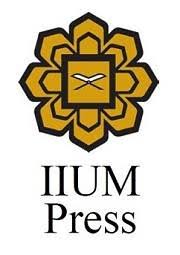ISLAMIC ETHICS OF BUSINESS: A MAQĀṢIDIC ANALYSIS
DOI:
https://doi.org/10.31436/alburhn.v6i3.282Abstract
Islamic Sharīʽah includes all affairs of human life. An important part of Sharīʽah is related to human transactions. Conducting business is considered an important transaction, which has existed since the beginning of human life and until today. Presently, committing unethical activities in conducting businesses has increased both among Muslims and non-Muslims all over the world. These unethical activities cause a Muslim to lose blessings of Allah Subḥānahū wa Taʽālā (SWT) in his income and make his earnings haram, which leads to unacceptance of his worship by Allah (SWT). It also causes harm to other people. This ultimately will be an important reason for him to be not successful on the Day of Judgment. To make a Muslim successful in this world and the life hereafter, Islam provides rules and guidelines to be followed. Among them are the rules and guidelines for conducting businesses sincerely and righteously. These rules and guidelines are called Islamic ethics of business. These ethics can be divided into two types: first, some attributes which must be possessed by a businessman; second, several forbidden things which must be avoided by him. This paper aims to analytically discuss the second type of these ethics and strives to investigate how committing these forbidden things causes to violate different types of maqāṣid (objectives) of Sharīʽah. An important finding of this research paper is that Islamic ethics of business have been prescribed by Allah (SWT) in a way that they maintain significant balance between dīn and dunyā and cause a Muslim to be successful both in this world and next world.
Downloads
References
ʽAbd al-Munʽim, Maḥmūd ʽAbd al-Raḥmān. (1999). Muʽjam al-Muṣṭalaḥāt wa al-Alfāẓ al-Fiqhiyyah (3 vols). Cairo: Dar al-Faḍīlah lil-Nashr wa al-Tawzīʽ wa al-Taṣdīr.
Abū Ghuddah, ʽAbd al-Sattār. (2010). Buḥūth fī al-Ḥaḍārah wa al-Qiyām al-Islamiyyah. Al-Mamlakat al-ʽArabiyyah al-Saʽūdiyyah: Majmū`ʽat al-Barakah al-Maṣrafiyyah.
Aḥmad, ʽAbd al-Raḥmān Yusrā. Ittifāqiyyāt Munazẓẓamāt al-Tijārah al-ʽĀlamiyyah fī Ḍaw’ Maqāṣid al-Sharīʽah.
Al-Dimashqī, Abu Zakariyyā Yaḥyā bin Sharaf al-Nawawī. (1991). Riyāḍ al-Ṣāliḥīn, edited by Shuʽayb al-Arnawūt. Beirut: Mu’assasat al-Risālah.
Al-Madkhalī, Muḥammad Manṣūr Rabīʽ. (n. d.). Akhlāqiyyāt al-Tijārah al-Iliktroniyyah fī al-Fiqh al-Islāmī. Abhā: King Khalid University.
Al-Qaraḍāwī, Yūsuf. (2008). Maqāṣid al-Sharīʽah al-Mutaʽalliqah bil-Māl. Dublin: European Council for Fatwa and Research. Retrieved on September 6, 2022 from: https://www.e-cfr.org/blog/2014/01/31/%D9%85%D9%82%D8%A7%D8%B5%D8%AF-%D8%A7%D9%84%D8%B4%D8%B1%D9%8A%D8%B9%D8%A9-%D8%A7%D9%84%D9%85%D8%AA%D8%B9%D9%84%D9%82%D8%A9-%D8%A8%D8%A7%D9%84%D9%85%D8%A7%D9%84/
Al-Shaykh, Nizār Maḥmūd Qāsim. (n. d.). Akhlāq al-Muslim fī al-Tijārah. AskIslamPedia-Online Islamic Encyclopedia. Retrieved on September 6, 2022 from https://www.askislampedia.com/ar/wiki/-/wiki/Arabic_wiki/%D8%A3%D8%AE%D9%84%D8%A7%D9%82+%D8%A7%D9%84%D9%85%D8%B3%D9%84%D9%85+%D9%81%D9%8A+%D8%A7%D9%84%D8%AA%D8%AC%D8%A7%D8%B1%D8%A9
Al-Tabrīzī, al-Shaykh Walī al-Dīn Muḥammad bin ʽAbd Allāh al-Khaṭīb. (n. d.). Mishkāt al-Maṣābīḥ Kashmiri Bazar, Lahore: Maktaba’i Mustafa’i.
Arslan, Zeynep. (2009). Islamic Business Ethics and Its Impact on Strategic Business Decision Making Progress of Muslims. Submitted for an MBA degree in Simon Fraser University, Canada.
Badawi, Jamal A. (2001). Islamic Business Ethics. ResearchGate. Retrieved on September 6, 2022 from: https://www.researchgate.net/publication/268002558
Dāniyāl. (2016). Akhlāq al-Aʽmāl al-Tijāriyyah fī al-Qur’ān (Dirāsah Lughawiyyah Mawḍūʽiyyah). Langkawi, 2: 1, 118-134.
Ebrahim, Abul Fadl Mohsin. (2014). An Insight into Islamic Business Ethics. Arabian Journal of Business and Management Review (Nigerian Chapter), 2: 9, 53-58.
Fāris, Ùāhā. (2015). Akhlāqiyyāt al-Tājir al-Muslim. Retrieved on September 6, 2022 from https://www.alukah.net/sharia/0/94378/أخلاقيات-التاجر-المسلم/
Islamic Principles for Business. Retrieved on September 6 from https://getrizq.co/5-islamic-principles-for-business/
Ghālib, Raʽd. (2005). Ḍawābiṭ al-Tijārah fī al-Sharīʽah al-Islāmiyyah. Majallat al-Fatḥ, 23, 91-104.
Gondal, Ishtiaq Ahmad. (n. d.). Business Ethics in Islam. Al-Adwa, 34: 25, 1-8.
Hornby, A. S., Cowie, A. P. & Gimson, A. C. (1983). Oxford Advanced Learner’s Dictionary of Current English. Oxford: Oxford University Press.
Institute of Policy Studies. (194). Elimination of Riba from the Economy. Islamabad: Institute of Policy Studies.
Muḥammad, Manṣūrī. (2010). Maqāṣid Aḥkām al-Sūq. Submitted for the degree of M. A. in Adrar University, Algeria.
Neufeldt, Victoria & Guralnik, David B. (1988). Webster’s New World Dictionary of American English. New York: Webster’s New World.
Qaḥaf, Mundhir. (2011). Asasiyyāt al-Tamwīl al-Islāmiī. Kuala Lumpur: International Shari`ah Research Academy for Islamic Finance.
Sānū, Quṭb Muṣtṭfā. (2000). Muʽjam Muṣṭalaḥāt Uṣūl al-Fiqh. Beirut: Dār al-Fikr al-Muʽāṣir.
Shehu, Farida Mohammed, Ahmad, Nor Hayati & Al-Aidaros, Al-Hasan. (2015). Islamic Entrepreneurship in the Light of Maqasid Al-Shari`ah: A Critical Review. Journal of Social and Development Sciences, 6: 4, 6-14. Retrieved on September 6, 2022 from: https://www.researchgate.net/publication/305777286
ʽUdaybat, Ṣafwān. (2021). Maqāṣid al-Muʽāmalāt al-Māliyyah (2). Dār al-Iftā’. Retrieved on Sep. 6, 2022 from https://aliftaa.jo/Article.aspx?Articled=3518#.YxY_G31ByM8
Violita, Evony Sivino. (2016). Approach of Maqasid Al Shariah in Business. Universitas Indonesia.
Yunus, Abul Khayr Md. (2017). Some Problems of Business Ethics: Islamic Point of View. Philosophy and Progress, LXI-LXII, 68-92.
Zulkifli, Che Mohd & Saripuddin, Che Omar Ana Siti Sarpina. (2015). Concept of Business Ethics in Islam-Approach to the Entrepreneur. Journal of Asian Business Strategy, 5: 1, 13-18.
Downloads
Published
How to Cite
Issue
Section
License
In general, reusing or reproducing substantial portions of al-Burhān content requires permission. This includes the use of text, figures, tables, multimedia content, and any other material published in any issues of al-Burhān Journal of Qur'an and Sunnah Studies. For some instances, al-Burhān may make its content freely viewable; however, such material may require permission for reuse. To seek permission, please contact the editorial.









